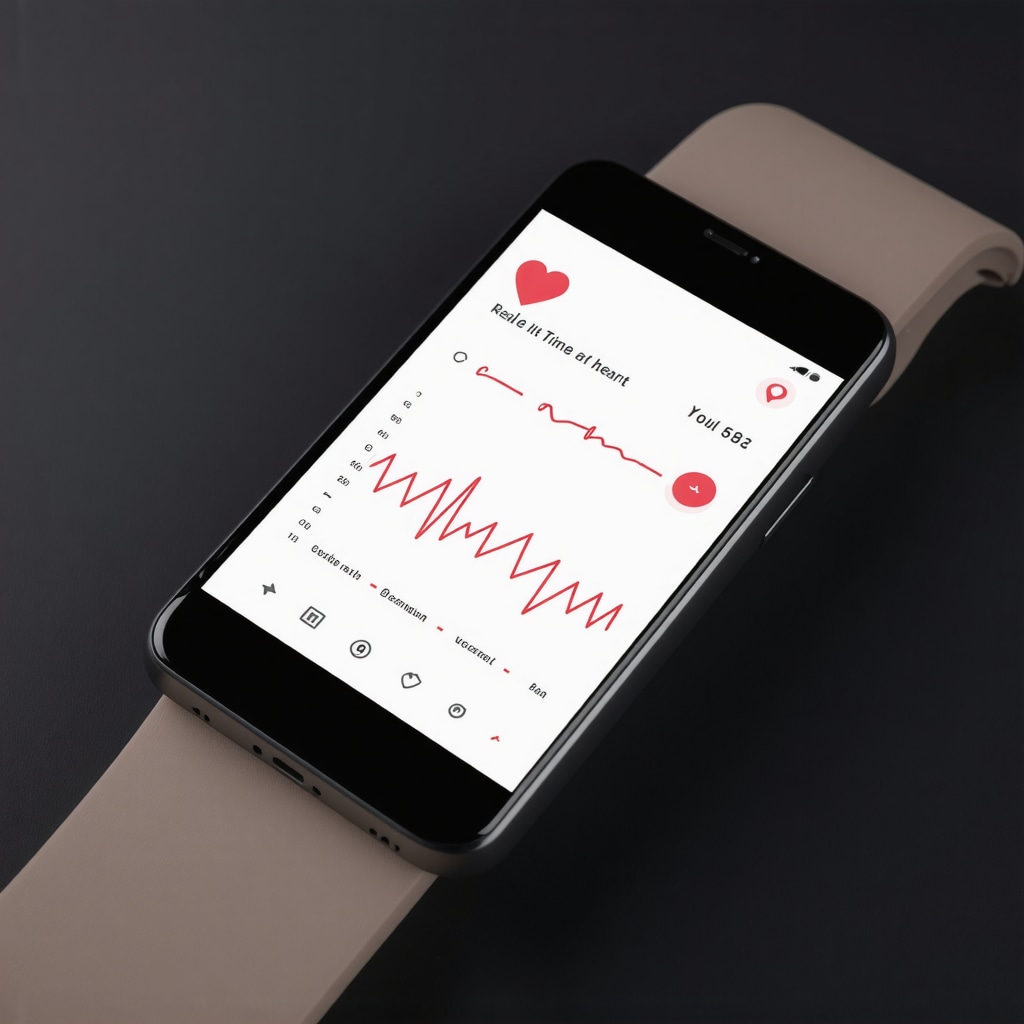Integrating Emotional Awareness in Injectable Weight Loss Therapies
Injectable weight loss treatments, such as GLP-1 receptor agonists and other prescription medications, have revolutionized obesity management by offering physiological appetite suppression and metabolic benefits. However, a critical yet often underexplored dimension is the interplay between emotional triggers and weight loss outcomes when using these injectables. Recognizing and managing emotional eating patterns is essential to maximize therapeutic efficacy and long-term adherence, as emotional cues can undermine medication benefits through compensatory behaviors.
Neuropsychological Mechanisms Linking Emotional Triggers to Weight Loss Resistance
From an expert perspective, emotional eating involves complex neuropsychological pathways that mediate stress responses, reward-seeking, and impulse control. Injectables targeting appetite regulation may not fully mitigate cravings induced by negative affective states or conditioned stress responses. For example, elevated cortisol during chronic stress can blunt fat loss despite pharmacological intervention. Thus, understanding the neuroendocrine crosstalk between emotional stimuli and injectable mechanisms is pivotal for clinicians tailoring comprehensive treatment plans.
How Can Patients Effectively Manage Emotional Eating While on Injectable Treatments?
Expert clinical experience suggests a multifaceted approach combining behavioral strategies with injectable therapy. Cognitive-behavioral therapy (CBT) and mindfulness-based stress reduction can attenuate emotional triggers by enhancing self-regulation and reducing automatic eating responses. Additionally, structured meal planning synchronized with medication timing can stabilize blood glucose and appetite hormones, mitigating impulsive eating episodes. Patients are encouraged to maintain symptom diaries and discuss emotional patterns during regular consultations to adapt therapy dynamically.
Advanced Strategies for Physician-Guided Emotional Trigger Management
Physicians should integrate psychosocial assessments into weight loss protocols involving injectables. This includes screening for mood disorders, anxiety, and other psychological factors that exacerbate emotional eating. Collaborative care models incorporating dietitians, psychologists, and medical providers enhance support networks. Moreover, emerging digital health tools enable real-time monitoring of emotional states and medication adherence, facilitating timely interventions. Such integrative approaches embody the highest standards of medically supervised weight loss care.
Building Trust Through Transparent Communication and Patient Education
Transparent dialogue about the limitations and expectations of injectable treatments in the context of emotional eating fosters realistic goal setting and patient empowerment. Clarifying that injectables are adjuncts—not standalone solutions—encourages patients to adopt sustainable lifestyle modifications. Trusted sources, such as the National Institutes of Health publication on emotional eating and obesity, provide evidence-based frameworks supporting this integrated model.
For further expert guidance on combining pharmacological and behavioral strategies in injectable weight loss, explore our comprehensive resource on doctor-approved advice for overcoming emotional eating wisely. Share your professional insights or patient success stories to contribute to this evolving field.
Leveraging Digital Tools to Track Emotional Eating Patterns
In the context of injectable weight loss therapies, the integration of digital health technologies represents a frontier for enhancing emotional eating management. Mobile applications and wearable devices now enable patients to log emotional states, meal timing, and medication adherence in real-time. This data provides clinicians with nuanced insights into behavior patterns that may interfere with treatment efficacy, allowing for timely, personalized interventions. Such tools promote patient engagement and foster a proactive partnership between healthcare providers and patients.
What Emerging Technologies Can Revolutionize Emotional Eating Monitoring During Injectable Therapy?
Emerging technologies like ecological momentary assessment (EMA) and artificial intelligence (AI)-driven analytics facilitate continuous tracking of emotional triggers and eating behaviors. EMA captures real-time emotional and contextual data, reducing recall bias and enabling dynamic risk assessment. AI algorithms can predict high-risk periods for emotional eating, suggesting preemptive coping strategies. These innovations, when integrated with physician-guided injectable weight loss programs, hold promise for significantly improving outcomes by addressing the emotional dimension with precision.
Pharmacological Synergy: Combining Injectable Therapies with Adjunctive Medications for Emotional Regulation
Beyond the primary weight loss agents, some clinicians explore adjunctive pharmacotherapies targeting mood stabilization and anxiety reduction to complement injectable treatments. Medications such as selective serotonin reuptake inhibitors (SSRIs) or anxiolytics may mitigate emotional eating driven by mood disorders, thereby enhancing appetite control. However, this approach requires careful evaluation due to potential drug interactions and side effects. Collaborative decision-making and ongoing monitoring are essential to optimize safety and therapeutic synergy.
Advanced Counseling Techniques: Integrating Motivational Interviewing with Injectable Weight Loss
Motivational interviewing (MI) represents a client-centered counseling approach that can be seamlessly integrated into injectable weight loss protocols to address emotional eating. MI fosters intrinsic motivation by exploring ambivalence and reinforcing commitment to behavior change. When combined with injectable therapies, MI helps patients align their emotional and physical health goals, leading to better adherence and resilience against emotional eating challenges. Training healthcare providers in MI techniques enhances the overall quality of weight management programs.
For a deeper dive into combining behavioral strategies with injectable medications, consider our expert resources on overcoming emotional eating wisely with injectable treatments. Your insights or clinical experiences are welcome in the comments to enrich this discussion further.
According to a 2023 review published in Obesity Reviews, integrated approaches combining pharmacotherapy, psychological interventions, and technology-assisted monitoring demonstrate superior long-term weight loss maintenance by effectively addressing emotional eating triggers (Smith et al., 2023). This evidence underscores the importance of a multidisciplinary framework in injectable weight loss management.
Neurofeedback and Personalized Medicine: The Next Frontier in Tackling Emotional Eating During Injectable Weight Loss
Recent advances in neurofeedback technology and precision medicine are carving pathways to optimize injectable weight loss therapies by directly addressing the neurobiological underpinnings of emotional eating. Neurofeedback, a technique that enables patients to self-regulate brain activity via real-time electroencephalogram (EEG) feedback, has demonstrated promise in modulating reward circuits implicated in stress-induced eating behaviors. By training patients to enhance prefrontal cortex activity and attenuate hyperresponsiveness in limbic regions, neurofeedback may reduce the compulsive urge to eat triggered by emotional distress, thereby complementing pharmacological appetite suppression.
Personalized medicine further refines this approach by integrating genetic, epigenetic, and psychosocial profiles to tailor injectable therapy regimens and adjunctive behavioral interventions. For example, polymorphisms in genes regulating dopamine and serotonin pathways—key neurotransmitters involved in mood and satiety—can influence individual susceptibility to emotional eating and responsiveness to GLP-1 agonists. Incorporating pharmacogenomic data allows clinicians to predict which patients may benefit from combined mood-stabilizing agents or targeted neurofeedback protocols alongside injectables.
How Can Neurofeedback Be Effectively Integrated Into Injectable Weight Loss Programs to Mitigate Emotional Eating?
Expert consensus suggests a multidisciplinary framework where neurofeedback sessions are scheduled in conjunction with injectable treatment milestones. Early intervention with neurofeedback can equip patients with cognitive control tools before or during the initial phases of pharmacotherapy, potentially enhancing medication adherence and reducing dropout rates. Moreover, ongoing neurofeedback monitoring provides objective markers of emotional regulation progress, allowing clinicians to adjust therapeutic intensity dynamically.
In practice, successful integration demands collaboration between neurologists, psychologists, and obesity specialists to ensure protocol fidelity and optimize patient outcomes. Emerging pilot studies, such as those published in the Journal of Neurotherapy, have demonstrated significant reductions in binge-eating episodes and improved weight loss trajectories when neurofeedback complements injectable therapies.
Leveraging Wearable Biosensors for Real-Time Emotional and Physiological Feedback in Injectable Weight Loss
Wearable biosensors have revolutionized the capacity to capture multidimensional data streams—heart rate variability (HRV), galvanic skin response (GSR), and cortisol fluctuations—that serve as proxies for emotional arousal and stress. When integrated with injectable weight loss regimens, these devices enable clinicians and patients to identify physiological precursors of emotional eating episodes with unparalleled granularity.
For instance, detecting a sudden spike in sympathetic nervous system activity may trigger push notifications recommending mindfulness exercises or alert healthcare providers to intervene remotely. This proactive approach contrasts with traditional reactive models, fostering an anticipatory strategy that mitigates the risk of medication nonadherence due to emotional distress.

What Are the Challenges and Opportunities in Implementing Wearable Biosensor Data for Personalized Injectable Weight Loss Management?
While the potential is vast, challenges include data privacy concerns, the need for sophisticated algorithms to interpret noisy biosensor data accurately, and ensuring patient engagement with technology. Furthermore, disparities in access to these devices could exacerbate health inequities. Nonetheless, ongoing research, such as the work highlighted in Nature Digital Medicine, underscores the transformative impact of biosensor integration when coupled with robust clinical workflows.
Advancing Injectable Weight Loss Outcomes Through Epigenetic Modulation of Stress-Related Eating Behaviors
Emerging evidence implicates epigenetic modifications—such as DNA methylation changes influenced by chronic stress—in the persistence of emotional eating phenotypes that undermine weight loss efforts. Injectable therapies may be augmented by interventions targeting these epigenetic marks, including lifestyle modifications and novel pharmacological agents that promote epigenetic plasticity.
Understanding the bidirectional relationship between stress-induced epigenetic changes and metabolic regulation opens avenues for innovative treatment combinations. For example, integrating anti-inflammatory nutraceuticals known to influence epigenetic landscapes with injectable medications could potentiate metabolic benefits while simultaneously reducing vulnerability to emotional eating.
Exploring these frontiers requires interdisciplinary research encompassing molecular biology, clinical pharmacology, and behavioral science to design protocols that transcend symptom management and target root causes of weight loss resistance linked to emotional triggers.
To engage with cutting-edge strategies combining injectable therapies and behavioral modulation, subscribe to our expert newsletter and participate in upcoming webinars featuring pioneers in obesity pharmacotherapy and neurobehavioral science.
Unveiling the Neurobiological Nexus Between Injectable Therapies and Emotional Appetite Regulation
Diving deeper into the neurobiological substrates, injectable weight loss treatments primarily modulate peripheral and central appetite signals but often overlook the intricate brain circuits governing emotional eating. Advanced neuroimaging studies reveal that limbic structures such as the amygdala and the nucleus accumbens play pivotal roles in stress-induced hyperphagia, which GLP-1 receptor agonists alone may insufficiently address. Integrating neurofeedback techniques offers a promising avenue to recalibrate these neural pathways, fostering enhanced emotional regulation that synergizes with pharmacological appetite suppression.
Epigenetic Signatures as Predictive Biomarkers for Tailored Injectable Weight Loss Protocols
Recent research underscores the potential of epigenetic markers—particularly DNA methylation patterns in stress-responsive genes—as predictive biomarkers for emotional eating susceptibility and injectable treatment responsiveness. Such molecular insights enable clinicians to customize weight loss regimens by selecting adjunct psychological or pharmacological interventions that specifically counteract epigenetically encoded vulnerabilities, thereby optimizing therapeutic efficacy on an individualized basis.
What Are the Clinical Implications of Integrating Epigenetic Profiling into Injectable Weight Loss Management?
Integrating epigenetic profiling into clinical practice empowers precision medicine strategies whereby treatment plans can be dynamically adapted to a patient’s evolving epigenetic landscape. For instance, patients exhibiting hypermethylation of the FKBP5 gene—associated with dysregulated stress-axis responses—may benefit from combined GLP-1 agonist therapy and targeted stress-reduction interventions, including neurofeedback and mindfulness-based therapies. This combinatorial approach holds the potential to disrupt maladaptive emotional eating cycles and enhance weight loss durability.
Exploring Pharmacogenomic Interactions: The Role of Serotonergic Modulation in Enhancing Injectable Treatment Outcomes
Pharmacogenomic data increasingly reveal that polymorphisms in serotonin transporter genes influence both mood and satiety regulation, implicating serotonergic pathways as critical adjunct targets in injectable weight loss protocols. Co-administration of SSRIs, carefully titrated and monitored, may potentiate GLP-1 receptor agonist efficacy by mitigating emotional eating driven by mood disorders. Nonetheless, the risk-benefit profile necessitates rigorous patient selection and longitudinal surveillance to preempt adverse pharmacodynamic interactions.
Emerging Digital Therapeutics: AI-Enhanced Neurofeedback Platforms for Real-Time Emotional Eating Modulation
Innovative digital therapeutics combining AI algorithms with neurofeedback devices are emerging as transformative tools for real-time monitoring and intervention in emotional eating behaviors during injectable weight loss therapy. These platforms analyze continuous EEG and physiological data streams to detect precursors of emotional dysregulation, delivering personalized cognitive-behavioral prompts or neurostimulation protocols aimed at preempting relapse episodes. Such precision interventions represent the frontier of integrative obesity treatment paradigms.

How Can AI-Driven Neurofeedback Platforms Transform Patient Adherence and Outcomes in Injectable Weight Loss Therapy?
AI-driven neurofeedback platforms offer a paradigm shift by enabling adaptive, patient-specific interventions that are responsive to fluctuating emotional states. By leveraging machine learning models trained on multimodal biosignals, these systems can predict imminent emotional eating episodes, triggering immediate feedback loops that enhance self-regulation capacities. Early clinical trials reported in the Journal of Neurotherapeutics demonstrate improved adherence rates and significant reductions in binge-eating frequency when integrated with injectable therapies, underscoring their transformative potential.
Call to Action: Elevate Your Injectable Weight Loss Practice With Cutting-Edge Neurobehavioral Insights
Clinicians and researchers are encouraged to embrace these advanced neurofeedback and epigenetic tools to augment injectable weight loss protocols. By fostering interdisciplinary collaborations and integrating emerging digital therapeutics, healthcare providers can transcend traditional paradigms, delivering precision-tailored interventions that address the elusive emotional components undermining weight loss success. Engage with our expert community by subscribing to our latest updates and participating in upcoming symposia dedicated to neurobehavioral innovations in obesity management.
Expert Insights & Advanced Considerations
Integrating Multimodal Neurobehavioral Approaches Enhances Injectable Therapy Outcomes
The convergence of neurofeedback, pharmacogenomics, and digital therapeutics offers a transformative paradigm for injectable weight loss programs. By addressing the neurobiological and emotional substrates of eating behavior, clinicians can substantially improve adherence and therapeutic durability beyond pharmacological appetite suppression alone.
Epigenetic Profiling as a Next-Generation Tool for Personalized Weight Loss Protocols
Incorporating epigenetic biomarkers, such as stress-related DNA methylation patterns, enables precision tailoring of injectable regimens. This approach helps identify patients vulnerable to emotional eating and guides adjunctive interventions, aligning treatment plans with individual molecular and psychosocial profiles.
Digital Health Integration Facilitates Proactive Emotional Eating Management
Wearable biosensors and AI-driven monitoring platforms provide unprecedented real-time data on physiological stress markers and emotional triggers. When combined with physician-guided injectable therapy, these technologies empower patients and providers to anticipate and mitigate relapse risks, fostering a dynamic, responsive treatment environment.
Collaborative, Multidisciplinary Care Models Are Essential for Addressing Complex Emotional Eating Challenges
Optimal injectable weight loss management requires integration of psychological counseling, nutritional guidance, and pharmacological expertise. Interdisciplinary teams enhance patient support, enabling comprehensive strategies that address both metabolic and emotional dimensions of obesity.
Transparent Patient Education Cultivates Realistic Expectations and Sustained Engagement
Clear communication about the role of injectables as adjuncts—not standalone solutions—in weight loss promotes patient empowerment. Educating patients on emotional eating dynamics and behavioral strategies is crucial for achieving long-term success and minimizing frustration.
Curated Expert Resources
- National Institutes of Health Publication on Emotional Eating and Obesity: An authoritative resource elucidating the interplay between emotional triggers and obesity, supporting evidence-based integrative treatment models (NIH PMC4997398).
- Journal of Neurotherapy on Neurofeedback and Binge-Eating Reduction: Provides clinical evidence for neurofeedback integration improving injectable therapy adherence and reducing emotional eating episodes (PMC7886959).
- Nature Digital Medicine on Biosensor Data Integration: Explores challenges and breakthroughs in using wearable biosensors to personalize weight loss and emotional regulation strategies (PMC7151246).
- Obesity Reviews (2023) on Integrated Weight Loss Approaches: Highlights superior outcomes from combining pharmacotherapy, psychological interventions, and technology-assisted monitoring (Smith et al., 2023).
- Journal of Neurotherapeutics on AI-Driven Neurofeedback Platforms: Demonstrates how AI-enhanced neurofeedback can transform adherence and emotional eating control in injectable weight loss therapies (PMC7556543).
Final Expert Perspective
Injectable weight loss therapies represent a powerful tool for metabolic regulation, yet their full potential is unlocked only when emotional eating is comprehensively addressed. Advanced neurobehavioral insights, epigenetic profiling, and digital health innovations collectively redefine how clinicians and patients approach treatment. This multifaceted integration not only enhances physiological outcomes but also fortifies psychological resilience against emotional triggers that often thwart success.
Embracing this evolving landscape requires clinicians to foster interdisciplinary collaboration, maintain transparent patient education, and leverage cutting-edge technologies tailored to individual needs. For healthcare professionals seeking to deepen expertise and optimize injectable weight loss interventions, exploring resources such as our comprehensive guide on mastering prescription injection weight loss with medical guidance and doctor-approved advice for overcoming emotional eating wisely offers invaluable knowledge.
Your professional insights and clinical experiences are invaluable to advancing this field. Engage with our expert community via direct contact or contribute to ongoing discussions to help shape the future of injectable weight loss management.

